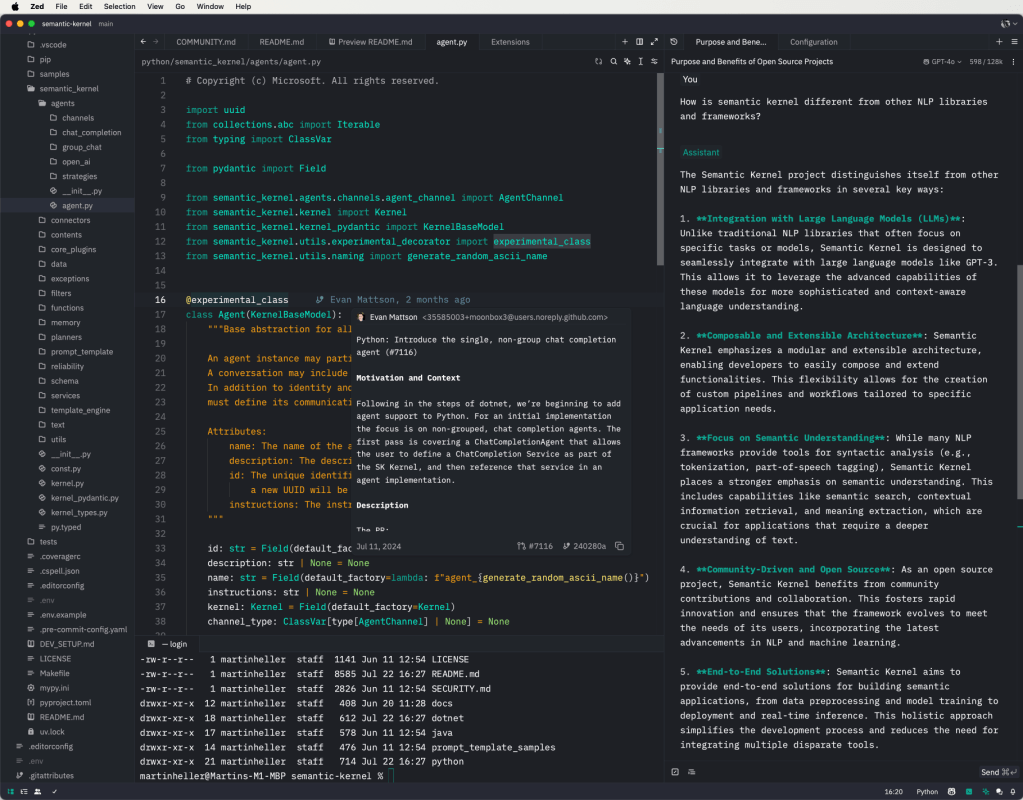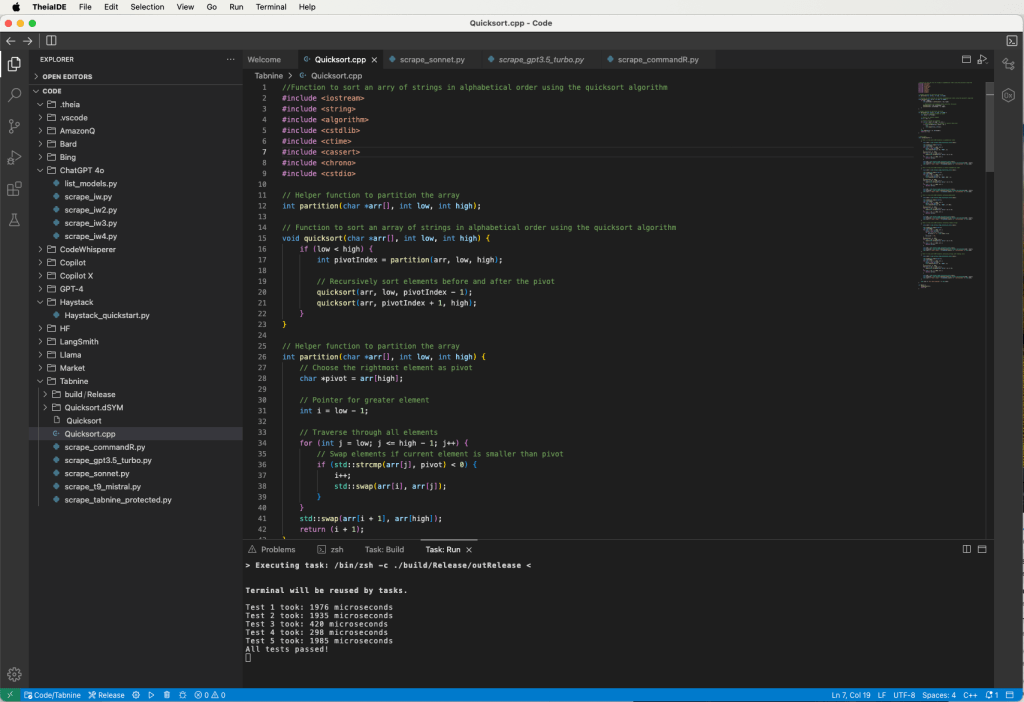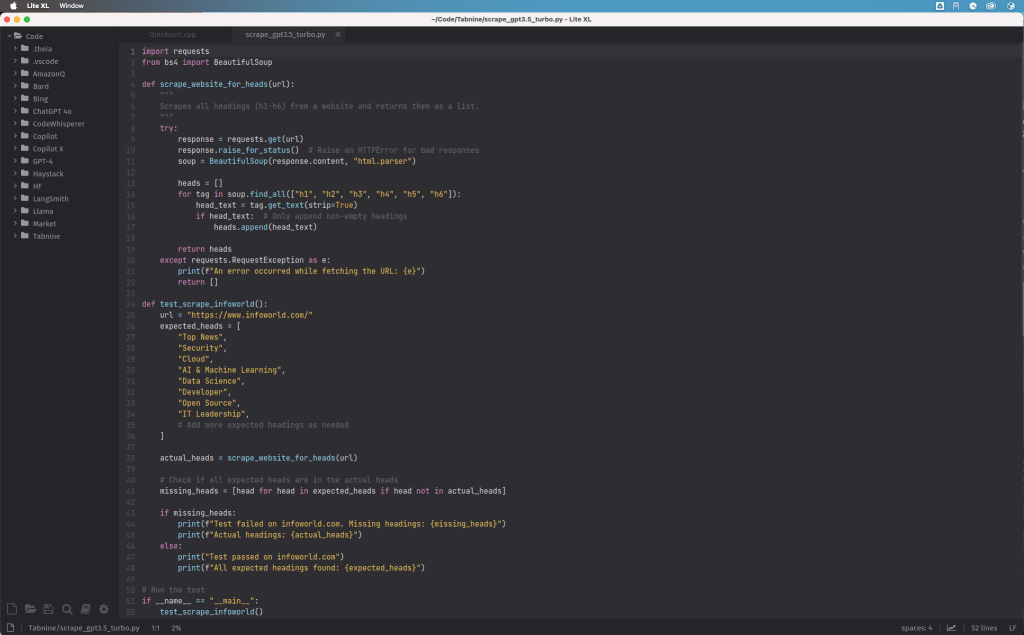
Zed shown viewing the Semantic Kernel source code. Note the Git information in the dropdown menu in the middle column, the AI chat in the right-hand column, and the GitHub Copilot icon at the bottom right.
IDG
Eclipse Theia is a framework for building IDEs and other development tools; the Eclipse Theia IDE is a cloud and desktop IDE built on the Theia framework. Theia IDE actually uses the Monaco editor component, and provides language support via Visual Studio Code’s LSP (Language Server Protocol) and DAP (Debug Adapter Protocol). Further, it can host VS Code extensions (it has 83 extensions built-in, although most are very basic) and provides terminal access. About half-a-dozen other products have been built from the Theia framework. Theia IDE is neither smaller nor faster than VS Code, and has numerous issues.

Theia IDE viewing and running Quicksort.cpp. Although I was able to install the C++ extensions, I wasn’t able to install the extensions that allow Python projects to run from the IDE.
IDG
Lite XL is pitched as a “lightweight, simple, fast, feature-filled, and extremely extensible text editor written in C, and Lua, adapted from lite.” It supports a LSP plug-in for language support, and a terminal plug-in. (I was able to install the terminal plug-in, but not get it to run on my M1 MacBook Pro.) Various other common editing features are also implemented as plug-ins. Lite XL is about a tenth of the size of Visual Studio Code. It installs on macOS using MacPorts. It is also supposed to install using builds on its releases page, but that version wouldn’t start on my M1 MacBook Pro.

Lite XL displaying and editing a Python program I wrote with help from generative AI using VS Code and Tabnine. Note that there is no terminal (I couldn’t get it installed), no pop-ups (ditto), and no run command (ditto). Lite XL is usable as an editor even without plug-ins.
IDG
Cursor, a fork of Visual Studio Code, is built to make you “extraordinarily productive,” and claims to be “the best way to code with AI.” Cursor has several code completion and chat models of its own built-in, and can also use Claude Opus and the premium models GPT-4, GPT-4o, and Claude 3.5 Sonnet. In the course of this review, more models were released, such as o1-mini. Exactly what models you can call, how often, and at what priority, depend on your Cursor and GitHub Copilot subscription plans and what API keys you supply. Cursor’s own code completion does more than GitHub Copilot. It can edit the code around your cursor and remove text, not just insert text at your cursor position. Cursor is about the same size as VS Code.












